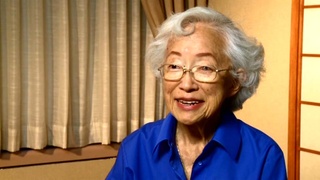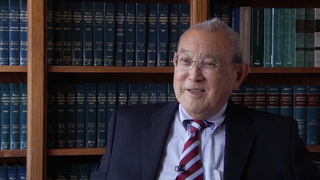Losing job with railroad because of being Japanese American
I even got a job driving a car to post what trains were coming through Spokane: freight, passenger. And I got the job, but they found out I was Japanese, and, “Hey, you can't have a Japanese delivering train schedules.” They were afraid the Japanese would bomb or whatever these railroad and freight, freight cars loaded with war goods. I've seen tanks going through Spokane, you know, army tanks. I was fired immediately, on the spot. They found out I was Yamada, Japanese, and I couldn't have that kind of sensitive job delivering. I used to have to go into Hillyard Station and post arrival of a freight train coming through Spokane and that. And it was a job that was a good job, but they fired me on that.
Date: March 15 & 16, 2006
Location: Washington, US
Interviewer: Megan Asaka
Contributed by: Denshō: The Japanese American Legacy Project.
Explore More Videos

“Everybody went in like sheep”
(1913-2013) Doctor specializing in obstetrics in Southern California

Discrimination for Nisei doctors
(1928–2016) Daughter of an Issei doctor


Being Denied as a Japanese American Lawyer
(b. 1934) The First Japanese American Appointed to the U.S. Court of Appeals.


Discrimination faced in San Francisco (Japanese)
(b. 1937) A war bride from Yokohama

Accepted by Japanese society as I learned more Japanese (Japanese)
(b. 1979) Sansei Nikkei Brazilian who lives in Oizumi-machi in Gunma prefecture. He runs his own design studio.


Being Confused about Racial Identity in Postwar United States
(b. 1932) Nisei American stage, film, and TV actress

Understanding anti black racism in high school
(b. 1943) Japanese American transgender attorney

Racial discrimination prepared her in becoming the first transgender trial lawyer
(b. 1943) Japanese American transgender attorney
